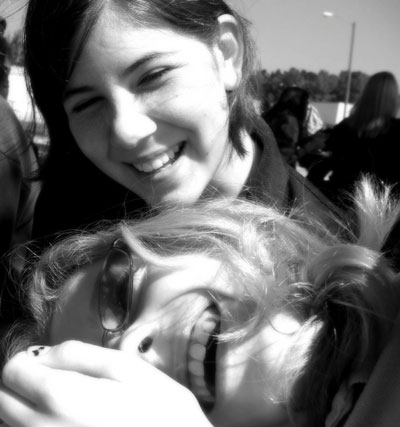All Nonfiction
- Bullying
- Books
- Academic
- Author Interviews
- Celebrity interviews
- College Articles
- College Essays
- Educator of the Year
- Heroes
- Interviews
- Memoir
- Personal Experience
- Sports
- Travel & Culture
All Opinions
- Bullying
- Current Events / Politics
- Discrimination
- Drugs / Alcohol / Smoking
- Entertainment / Celebrities
- Environment
- Love / Relationships
- Movies / Music / TV
- Pop Culture / Trends
- School / College
- Social Issues / Civics
- Spirituality / Religion
- Sports / Hobbies
All Hot Topics
- Bullying
- Community Service
- Environment
- Health
- Letters to the Editor
- Pride & Prejudice
- What Matters
- Back
Summer Guide
- Program Links
- Program Reviews
- Back
College Guide
- College Links
- College Reviews
- College Essays
- College Articles
- Back
There Will Come Soft Rains --- Review
As formally addressed by similes in the last stanza of the poem “There Will Come Soft Rains,” the major theme in the poem is the good effects after the disappearance of humanity due to wars for natural and physical resources. Sara Teasdale starts her poem by using the sentences: “There will come soft rains” (1), which by deep annotation, it connotes that due to the lack of chemicals going into our air, the rain will be softer. We don’t know what caused human extinction, though we know a war was a part of it. Environmental issues can be a secondary problem as it is a threatening problem that could lead to human extinction in real life. Another big part that adds to the meaning of the poem, is the use of rhyme. For example, at the end of the very first stanza, rhyme between the words “ground” and “sound” is used.
Us people perceive and appreciate things differently, though there are things that can be associated with certain moods if you describe someone being alone in the dark with his heart beating a thousand times per minute you associate the action of being alone, with sadness. In this case, so it is very similar, but as the poem is all about the positive events after human disappearance, many words can be associated with happiness. An example of this would be: “Frogs in the pools singing” It doesn’t necessarily specify the happy tone, but we can associate it with happiness because of the word “singing”.
At the beginning of the poem, the tone and mood is very well established by the choice of diction used to convey the main theme of the poem. But as in the third stanza of the poem, I sense a drastic change of tone from the diction used from the third stanza until the end of the poem. We’re depicted at first a very peaceful environment with freedom, but in this stanza, a very catchy phrase is used; “Robins will wear their feathery fire” (5), or even the fourth stanza: “And not one will know of the war, not one will care at last when it is done” (7-8). And again, the fifth stanza also generates this darkened- typo environment, as it is mentioning that it doesn’t matter to birds or trees whether humans are gone. What’s really significant about this stanza is that connects the thought of the afterlife, to the current problem that humans are facing. And there’s not an absolute reason for this statement to be unreliable or unrealistic, as it true that if humans disappear, we won’t be a threat to the left vivid species.

Similar Articles
JOIN THE DISCUSSION
This article has 0 comments.
